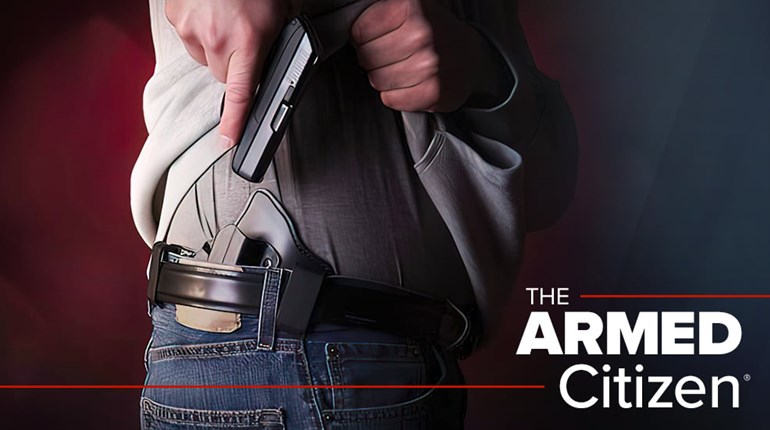
Backdoor gun-control laws and regulations are often promoted as public-safety measures, as if criminals will heed new laws that limit places for concealed carry, require “safe storage” of firearms or create magazine-capacity limits. Anyone with a little common sense could tell you that only the law-abiding follow these kinds of laws.
Gun-control-promoting politicians and the groups that back them like these burdensome regulations because they know many good citizens will respond to them by giving up on exercising their Second Amendment rights, as they don’t have the time or money to deal with fees, paperwork, complicated regulations and frightening legal traps, such as overly broad “sensitive-place” restrictions.
Indeed, since the U.S. Supreme Court decided the NRA-backed case New York State Rifle & Pistol Association v. Bruen, many gun-control-
promoting politicians have worked to get around this Second Amendment ruling that confirmed that, yes indeed, our Second Amendment rights do extend outside of our homes.
More specifically, at issue was New York’s requirement that a citizen show “proper cause” before a local licensing official might be convinced to grant a law-abiding citizen a concealed-carry permit. In Bruen, the Court ruled that this proper-cause requirement was unconstitutional. In so doing, the high court affirmed that the Second Amendment applies beyond the home, but like any constitutional right, there are limitations; for example, it is longstanding law that a private citizen cannot carry a gun into an actual sensitive place, such as into a courtroom. Some state politicians seized on this exception and decided to expand it to almost everywhere.
Meanwhile, with Bruen, the U.S. Supreme Court also informed lower courts that the interest-balancing tests that were often used by judges to keep such laws in place are not the standard to use when determining if a law is constitutional. To find a gun-control law constitutional, this ruling requires courts to look for historical analogs, including finding similar laws that existed during the period when the first 10 amendments to the U.S. Constitution (known as the U.S. Bill of Rights) were ratified; in some cases, this can include when the 14th Amendment was ratified, as this was the constitutional mechanism that expanded this and other rights so they also restrict state and local governments.
Such is why, in their zeal to get around this ruling, some anti-Second Amendment politicians, such as in New York and New Jersey, have been quick to embrace broad “sensitive-place” restrictions, higher fees, mandated training requirements and more. As this was going to print, this effort by gun-control politicians includes a proposed law in Massachusetts (AB 4420), titled “An Act Modernizing Firearm Laws.”
Introduced by State Rep. Michael Day (D), the bill’s so-called “modernization” includes the mandatory registration of all firearms and ammunition feeding devices. Like New York’s “Concealed Carry Improvement Act,” passed just after the Bruen decision was decided, it bans “possessing any gun, loaded, or unloaded” at a wide range of public places and even on many private properties. In sum, it would make much of the state off limits to concealed carry, unless property owners explicitly post signs stating that firearms are welcome.
AB 4420 would also mandate the “safe storage” of firearms and create new firearms training requirements for gun owners, including costly written exams and live-fire training. The bill also would redefine “assault weapons” to be defined by a single cosmetic feature so the state could ban yet more popularly owned guns. On top of this legislation’s gun-registration requirements, gun owners would also be forced to notify state authorities any time a firearm is modified; this even includes simple changes, such as upgrading a trigger or adding an optic. Magazines would have to be serialized and registered. Anyone who loses or destroys a magazine would have to report this to state authorities.
If this bill becomes law, how many Massachusetts citizens will simply lock away their firearms for good or sell them to avoid the hassle and possible legal ramifications of keeping and bearing arms? This is what gun-control proponents want. If they can’t outright ban guns, then they want to make owning and carrying arms as difficult and legally problematic as possible.
Other states are also actively trying to make concealed carry as onerous as possible. Hawaii has gone beyond trying, as Gov. Josh Green (D) signed Senate Bill 1230 into law in June 2023. The bill massively expanded “gun-free zones” in Hawaii, which created a complicated patchwork of places where people can and (mostly) can’t lawfully carry. Under the new law, all state and county buildings are on the no-carry list, as are public and private universities, daycare facilities and children’s summer camps, playgrounds, museums, carnival, zoos and recreational centers. Also, carry is banned in airports (outside the scope of the already prohibited area after one passes through security screening), bus and train stations, on public buses and trains, at “harbors” and in many other locations.
In other words, in states with such laws, if a citizen with a valid carry permit leaves his or her home, they stand a great chance of unintentionally breaking the law simply by being in public. In such an environment, no doubt many Americans will simply abandon carry altogether, leaving themselves defenseless.
New Jersey passed its own end-run law on concealed carry in 2022, with Assembly Bill 4769, which, much like the Hawaii law, essentially prohibits concealed carry in most of the state. Plus, the law required that people get a $300,000 liability policy before they can receive a concealed-carry license. This law was taken to federal court in an NRA-backed case, Siegel v. Platkin. In May 2023, the court issued a preliminary ruling that prevented the state from enforcing much of the legislation until the full legal proceedings are resolved.
In its preliminary ruling, the court concluded that the law “went too far, becoming the kind of law that Founding Father Thomas Jefferson would have warned against since it ‘disarm[s] only those who are not inclined or determined to commit crimes [and] worsen[s] the plight of the assaulted, but improve[s] those of the assailants.’”
Unfortunately, this is only a small sampling of the current proposals and laws already on the books to regulate away the right to keep and bear arms in states controlled by anti-Second Amendment politicians. Add it all up and the larger intent of these proposals and laws is clear: to make it such a burden to exercise our Second Amendment rights that people simply give up on even trying.


































